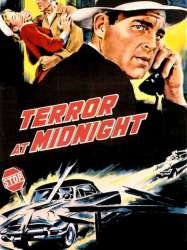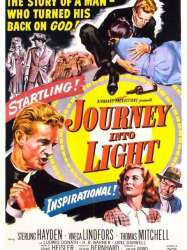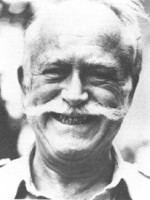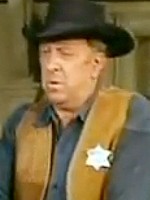Irving Shulman is a Scriptwriter American born on 21 may 1913 at Brooklyn (USA)

Irving Shulman (May 21, 1913 – March 23, 1995) was an American author and screenwriter whose works were adapted into movies. His books included The Amboy Dukes, Cry Tough and The Square Trap, all of which were adapted into movies.
Shulman wrote the early film treatment for Rebel Without a Cause. Stewart Stern did the screenplay based on the story concepts of Shulman and director Nicholas Ray. Later, Shulman used his treatment as the basis for his 1956 novel Children of the Dark.
Published in 1947, The Amboy Dukes examined the grim and sometimes short lives of teenage street criminals in Brooklyn during World War II. It sold five million copies and led to his being hired as a screenwriter by Warner Bros. Two subsequent novels, Cry Tough! and The Big Brokers, followed the equally grim experiences of the some of the characters who survived The Amboy Dukes, but with somewhat less emphasis on their Jewishness. In The Amboy Dukes two members of the gang accidentally shoot and kill one of their teachers—a third member of the Dukes kills one of them before the story is over. In Cry Tough, another member of the Dukes, Mitchell Wolf, returns from prison and after trying to "go straight" becomes a member of an organized crime family. In The Big Brokers, Wolf and two other alumnae of the Dukes are sent to Nevada to run one of the crime family's casinos in Las Vegas. Shulman's message in all three books is that crime does not pay.
In the 1960s, Shulman wrote biographies of Jean Harlow and Rudolph Valentino, and a novelization of the film West Side Story.
Shulman died of Alzheimer's disease in 1995.
Succès critique et commercial, ce roman devient au cinéma Graine de faubourg , film réalisé par Maxwell Shane , avec Stephen McNally dans le rôle principal. Il ouvre également à Shulman les portes de la Warner Bros. où il y devient scénariste, en parallèle à sa carrière d’écrivain.
Au début des années 1950, Shulman continue d’écrire et voit son second roman, Cry Tough, être adapté au cinéma par Paul Stanley en 1959 sous le titre La Fin d'un voyou, avec John Saxon et Linda Cristal. Il signe également trois scénarios pour Stuart Heisler (Journey into light en 1951), Kurt Neumann (The Ring en 1952) et William A. Seiter (Champ for a Day en 1953).
Remarqué par le réalisateur Nicholas Ray qui souhaite réaliser un film sur la délinquance juvénile, il participe avec le réalisateur à l’écriture de la première histoire et apporte ses conseils à Stewart Stern qui parachève le scénario du film La Fureur de vivre sorti en 1955. Succès fulgurant, le film, porté par la mort récente et l’aura nouveau de James Dean, devient l’un des premiers classiques américains de l’après-guerre.
Shulman en écrit la novélisation en 1957, nommé Children of the Dark, et poursuit sa double carrière. Il signe trois nouveaux scénarios pour le cinéma, dont celui du film L'Ennemi public de Don Siegel. Il publie également de nombreux nouveaux romans, dont quelques novélisations (West Side Story de Robert Wise et Jerome Robbins, L'Inquiétante Dame en noir de Richard Quine, second roman traduit de l’auteur sous le titre Pension Mandragore en 1963 et Platinum High School de Charles F. Haas). Il écrit également trois biographies consacrées à Jean Harlow, Rudolph Valentino et Jackie Kennedy.
Il finit par se retirer du milieu cinématographie et littéraire au début des années 1970 et décède en 1995 à Los Angeles des suites de la maladie d'Alzheimer.
Source : Wikidata
Irving Shulman

- Infos
- Photos
- Best films
- Family
- Characters
- Awards
Nationality USA
Birth 21 may 1913 at Brooklyn (USA)
Death 23 march 1995 (at 81 years) at Sherman Oaks, Los Angeles (USA)
Birth 21 may 1913 at Brooklyn (USA)
Death 23 march 1995 (at 81 years) at Sherman Oaks, Los Angeles (USA)
Shulman wrote the early film treatment for Rebel Without a Cause. Stewart Stern did the screenplay based on the story concepts of Shulman and director Nicholas Ray. Later, Shulman used his treatment as the basis for his 1956 novel Children of the Dark.
Published in 1947, The Amboy Dukes examined the grim and sometimes short lives of teenage street criminals in Brooklyn during World War II. It sold five million copies and led to his being hired as a screenwriter by Warner Bros. Two subsequent novels, Cry Tough! and The Big Brokers, followed the equally grim experiences of the some of the characters who survived The Amboy Dukes, but with somewhat less emphasis on their Jewishness. In The Amboy Dukes two members of the gang accidentally shoot and kill one of their teachers—a third member of the Dukes kills one of them before the story is over. In Cry Tough, another member of the Dukes, Mitchell Wolf, returns from prison and after trying to "go straight" becomes a member of an organized crime family. In The Big Brokers, Wolf and two other alumnae of the Dukes are sent to Nevada to run one of the crime family's casinos in Las Vegas. Shulman's message in all three books is that crime does not pay.
In the 1960s, Shulman wrote biographies of Jean Harlow and Rudolph Valentino, and a novelization of the film West Side Story.
Shulman died of Alzheimer's disease in 1995.
Biography
Il travaille dans l’administration à Washington DC avant d’être assistant à la faculté d’anglais de l’université de Californie. À la fin de la Seconde Guerre mondiale, il publie le roman The Amboy Dukes, inspiré de sa thèse universitaire, et devient ainsi l’un des premiers romanciers à évoquer dans ces écrits l’univers de la délinquance juvénile et le manque de réponse de l’État américain face à ce problème. Cette œuvre met en scène une bande de jeunes qui, lors d’une tentative d’intimidation qui tourne mal, en viennent à tuer l’un de leurs professeurs, semant alors la division et la mort au sein de leur groupe. Il a été traduit au sein de la collection Série noire en 1949 sous le titre La Main chaude.Succès critique et commercial, ce roman devient au cinéma Graine de faubourg , film réalisé par Maxwell Shane , avec Stephen McNally dans le rôle principal. Il ouvre également à Shulman les portes de la Warner Bros. où il y devient scénariste, en parallèle à sa carrière d’écrivain.
Au début des années 1950, Shulman continue d’écrire et voit son second roman, Cry Tough, être adapté au cinéma par Paul Stanley en 1959 sous le titre La Fin d'un voyou, avec John Saxon et Linda Cristal. Il signe également trois scénarios pour Stuart Heisler (Journey into light en 1951), Kurt Neumann (The Ring en 1952) et William A. Seiter (Champ for a Day en 1953).
Remarqué par le réalisateur Nicholas Ray qui souhaite réaliser un film sur la délinquance juvénile, il participe avec le réalisateur à l’écriture de la première histoire et apporte ses conseils à Stewart Stern qui parachève le scénario du film La Fureur de vivre sorti en 1955. Succès fulgurant, le film, porté par la mort récente et l’aura nouveau de James Dean, devient l’un des premiers classiques américains de l’après-guerre.
Shulman en écrit la novélisation en 1957, nommé Children of the Dark, et poursuit sa double carrière. Il signe trois nouveaux scénarios pour le cinéma, dont celui du film L'Ennemi public de Don Siegel. Il publie également de nombreux nouveaux romans, dont quelques novélisations (West Side Story de Robert Wise et Jerome Robbins, L'Inquiétante Dame en noir de Richard Quine, second roman traduit de l’auteur sous le titre Pension Mandragore en 1963 et Platinum High School de Charles F. Haas). Il écrit également trois biographies consacrées à Jean Harlow, Rudolph Valentino et Jackie Kennedy.
Il finit par se retirer du milieu cinématographie et littéraire au début des années 1970 et décède en 1995 à Los Angeles des suites de la maladie d'Alzheimer.
Best films
Usually with
Filmography of Irving Shulman (9 films)
Scriptwriter

Harlow (1965)
, 2h5Directed by Gordon Douglas, Alex Segal
Origin USA
Genres Drama, Biography
Themes Films about television
Actors Carroll Baker, Carol Lynley, Red Buttons, Efrem Zimbalist II, Raf Vallone, Ginger Rogers
Roles Book
Rating56%





The film opens with Harlow as a struggling extra and bit actress dealing with her greedy stepfather Marino (Raf Vallone) and oblivious mother "Mama Jean" (Angela Lansbury, only six years older than Carroll Baker). With the help of Arthur Landau (Red Buttons), she rises to fame and gains the unwanted attention of the Howard Hughes-inspired Richard Manley (Leslie Nielsen). She then marries Paul Bern (Peter Lawford), an absentee husband who kills himself some time after the marriage. His death, combined with the stress of her career leads Harlow on an odyssey of failed relationships and alcoholism, culminating in her death of kidney failure at the age of twenty-six.

College Confidential (1960)
, 1h31Directed by Albert Zugsmith
Origin USA
Genres Drama
Actors Steve Allen, Mamie Van Doren, Jayne Meadows, Herbert Marshall, Mickey Shaughnessy, Sheilah Graham
Rating48%





A sociology professor Steve McInter starts conducting a survey at Collins College about the lifestyles and sexual urges of the younger generation. One of his students Sally Blake excels with the survey and may or may not be having an affair with the professor. A reporter Betty Ducayne receives an anonymous tip that Steve is corrupting the youth and she discovers a dark past which he had obviously fled from.

Cry Tough (1959)
, 1h24Directed by Paul Stanley
Origin USA
Genres Drama, Action, Crime
Actors John Saxon, Linda Cristal, Joseph Calleia, Harry Townes, Don Gordon, Perry Lopez
Roles Novel
Rating58%






Baby Face Nelson (1957)
, 1h25Directed by Don Siegel
Origin USA
Genres Drama, Biography, Noir, Crime
Themes Mafia films, Gangster films
Actors Mickey Rooney, Carolyn Jones, Cedric Hardwicke, Leo Gordon, Jack Elam, Anthony Caruso
Roles Story
Rating62%





Chicago mob boss Rocca manages to get Lester Gillis sprung from jail in Joliet. His motive is to have Gillis kill a labor organizer, but Gillis refuses, preferring to work with Rocca's gang on robberies instead. He meets mob moll Sue Nelson and they start a relationship.

Terror at Midnight (1956)
, 1h10Directed by Franklin Adreon
Origin USA
Genres Drama, Crime
Actors Scott Brady, Joan Vohs, Frank Faylen, John Dehner, Virginia Gregg, Ric Roman
Roles Story
Rating62%





Rick Rickards, a cop, lends his car to Susan Lang, his fiancee. She accidentally runs into a night watchman riding a bicycle. An eyewitness named Speegle suggests she flee the scene before the watchman regains consciousness.

Rebel Without a Cause (1955)
, 1h51Directed by Nicholas Ray, Don Alvarado, Gary Nelson
Origin USA
Genres Drama
Themes Films about families, Transport films, Films about automobiles
Actors James Dean, Natalie Wood, Sal Mineo, Ann Doran, William Hopper, Rochelle Hudson
Roles Adaptation
Rating75%





Behind the opening credits, the film opens on a suburban Los Angeles street with teenager Jim Stark (Dean) drunkenly lying down on a sidewalk. He is arrested and taken to the juvenile division of the police station for "plain drunkenness". At the station he meets John "Plato" Crawford (Mineo), who was brought in for shooting a litter of puppies with his mother's gun, and Judy (Wood), who was brought in for curfew violation (she was wearing a bright red dress with matching lipstick and was mistaken for being a streetwalker). The three each separately reveal their innermost frustrations to officers; all three of them suffer from problems at home:

The Ring (1952)
Directed by Kurt Neumann
Origin USA
Genres Drama, Comedy
Themes Sports films, Martial arts films, Boxing films
Actors Gerald Mohr, Lalo Ríos, Rita Moreno, Robert Osterloh, Robert Arthur, Jack Elam
Roles Créateur de nouvelle
Rating62%





The film focuses on a young Mexican-American named Tommy (Lalo Rios). resident in Los Angeles´s neighborhood. He feels unable to progress in American society, dominated by white Anglophones. Therefore, to achieve popularity, he decides to become a boxer, thus achieving fame and honor. But when he believes he has earned the respect of the "Anglos", he discovers that they are only interested in his reputation, because they still consider him an outsider because of their ancestry and skin colour. Only two white men treat him decently: his manager Pete (Gerald Mohr) and trainer Freddy (Robert Osterloh). However, they also have a personal interest in him. The manager quits due to disappointment over Tommy's unconditional love for Lucy (Rita Moreno), the daughter of a punch-drunk bum.

Journey Into Light (1951)
, 1h27Directed by Stuart Heisler
Origin USA
Genres Drama
Themes Medical-themed films, Films about religion, Films about disabilities, La cécité
Actors Sterling Hayden, Viveca Lindfors, Thomas Mitchell, Ludwig Donath, H. B. Warner, Jane Darwell
Rating62%





John Burrows, an ordained minister from a small village in the East, envisions himself with a larger congregation. He is mortified when his wife drunkenly interrupts a sermon, then despondent after her suicide.

City Across the River (1949)
, 1h31Directed by Maxwell Shane
Origin USA
Genres Drama, Crime
Actors Stephen McNally, Thelma Ritter, Luis van Rooten, Jeff Corey, Sue England, Richard Benedict
Roles Adaptation
Rating62%





Two members of a tough Brooklyn street gang accidentally kill one of their teachers.
 Connection
Connection


